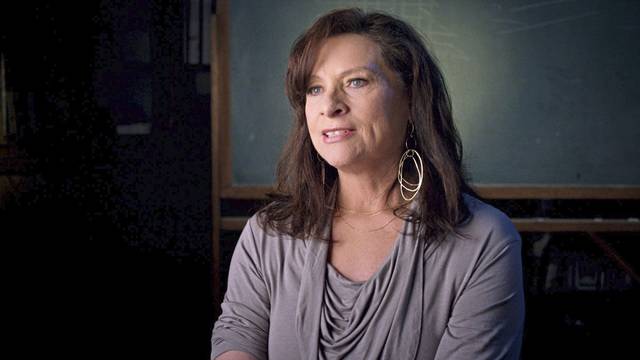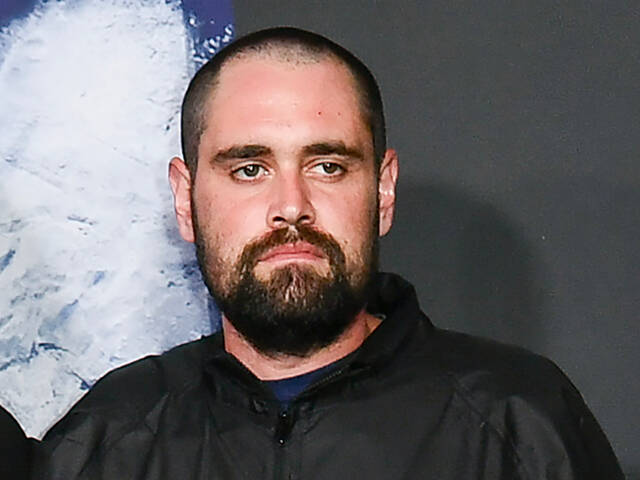The latest Netflix adaptation of one of Pittsburgh native August Wilson’s plays, the filmed-in-Pittsburgh “Ma Rainey’s Black Bottom,” stars Viola Davis and the late Chadwick Boseman in a period piece that feels relevant and timely.
An almost unrecognizable Davis, jettisoning any semblance of vanity, stars as Ma Rainey, a real historical figure and one of the earliest African-American blues singers to record her performances in the 1920s.
Wilson’s 1982 play — it made its Broadway debut in 1984 — is set during one of Ma’s last recording sessions where her approach to business (do it Ma’s way) clashes with brash upstart trumpeter Levee (Boseman), who tries to ingratiate himself to the record’s white producer by giving the producer what he wants.
Boseman delivers in his final searing performance — the actor died at age 43 in August from colon cancer — as he plays the complicated Levee, the walking embodiment of how wrongs left to simmer can explode.
The formidable Davis is the take-no-guff yin to Boseman’s yang, holding firm to get what she’s been promised.
It’s an intimate film but rarely feels stagey. Director George C. Wolfe (“The Immortal Life of Henrietta Lacks”) zeroes in on the Ma-Levee conflict and Levee’s traumatic backstory, which makes the film’s conclusion devastatingly tragic.
Most of “Ma Rainey’s” takes place in a recording studio and rehearsal room which were built on soundstages at 31st Street Studios in The Strip. Pittsburgh locations featured include the North Side’s West North Avenue, used for scenes outside the Chicago recording studio, and North Park, where a scene of a Ma Rainey performance under a tent was staged.
“August was so much a writer created by his surroundings,” said Constanza Romero, Wilson’s widow and an executive producer on the movie alongside Denzel Washington. “He was born in the City of Pittsburgh so bringing it to Pittsburgh to film just makes sense to me.”
“Ma Rainey’s” is set in 1927 Chicago and director Wolfe said Pittsburgh’s preserved architecture from the period served the film well.
“It was sort of wondrous and surprising how rich and varied it was,” he said in an interview earlier this month. “It felt like it’s a movie location pretending to be a town so that we could come there and do our movie there.”
Wolfe said he had “a degree of trepidation” about filming potentially stagey scenes in the band rehearsal room where much of the movie’s dramatic tension plays out and where viewers get to know and understand the characters.
“I clicked on to the idea that this is a series of boxing matches,” Wolfe said in a Zoom interview last week. “Instead of hurling punches at each other, these guys are hurling language.”
Romero was impressed with Wolfe’s notes to production designer Mark Ricker (“Escape at Dannemora”) about the look of the rehearsal room, which is in a dark, dank basement.
“He told the production designer to make it look like the hull of a slave ship,” Romero said by phone from her home in Seattle. “George understood the play in such a deep way. It’s almost as if he sat down in a little corner and talked to August.”
Working from a script by Ruben Santiago-Hudson (“Lackawanna Blues”), Wolfe said Wilson’s chronicle of the Black American experience runs headlong into America’s perpetual, complicated conversation with its own past.
“He’s writing about people who are dealing with legacies. And were dealing with a country that likes to be very selective about exploring its legacies,” Wolfe said. “So there’s going to be that collision, which I think is always fascinating and interesting to play with.”
Wolfe describes Ma Rainey as a Black woman who did not wait for others to give her power.
“If you wait around for people to give you power, they’re going to give you the amount of power that they think you should have,” Wolfe said. “In 1927 as a Black woman, that was not going to work for her. So she claimed and took command of everything that she needed to in order to do what she had to do as an artist and as a human being.”
Contrast that with Levee, who tries to negotiate for what he wants.
“Levee and Ma need each other,” Wolfe said. “Levee has a sound for the future that would help Ma and Ma has information about how to negotiate power. And he doesn’t have any of that. … There are many tragedies that are connected to this film, but one of them is that they don’t take advantage of what the other person has to offer.”
Wolfe admired the emotional depth Boseman brought to his portrayal of Levee.
“A lot of Levee’s most potent stuff was saved for the last week (of filming), and take after take, scene after scene, he just would go there emotionally, psychologically, spiritually over and over and over,” Wolfe said. “I was dazzled and humbled and feel blessed that I was a part of that journey.”
Romero said after 2016’s “Fences,” probably the best known of Wilson’s plays, “Ma Rainey’s” introduces audiences to the scope and vision of Wilson’s 10-play American Century Cycle. (She prefers that term to “the Pittsburgh Cycle,” as the plays are often called, because while mostly set in Pittsburgh, Wilson’s plays have broad application as they tell “the stories of African-Americans in the 20th century but any story of the oppressed is the story of the oppressor and I think that we all in this country need to embrace these stories as our stories.”)
Washington has said he wants to adapt all 10 plays for Netflix.
“I know that there has been lot of talk about ‘The Piano Lesson’” getting made next, Romero said. “The Piano Lesson” was already filmed once for a 1995 “Hallmark Hall of Fame” TV movie that starred Alfre Woodard and Charles S. Dutton. “I think in 2020 that particular play could be mined and it could be explored through the lens of today in a completely different way.”
In addition to “Ma Rainey’s,” last week Netflix premiered “Giving Voice,” a 90-minute documentary executive produced by Davis and Washington that follows six students as they advance through the August Wilson Monologue Competition.
“The Stand”
Benjamin Cavell, executive producer of a new, nine-hour adaptation of Stephen King’s “The Stand” (previously a six-hour ABC miniseries in 1994), says he never considered the Stephen King novel to be about a pandemic even though it begins with one.
“The pandemic in the book exists as a kind of mechanism to empty out the world so that there can be this really elemental struggle between … the forces that are united behind Mother Abagail and the forces that are united behind the Dark Man,” Cavell said during a Zoom press conference with reporters earlier this month.
Now streaming on CBS All Access, “The Stand” is based on King’s extended version of the novel that chronicles the battle between survivors of a pandemic, led by 108-year-old Mother Abagail (Whoopi Goldberg) and the charming but deadly Randall Flagg (Alexander Skarsgard), AKA “the Dark Man.”
King’s son, Owen King, was a writer on the series. Cavell said Stephen King read drafts of the scripts, offered notes and wrote the show’s final episode in which the author attempts to rectify an aspect of the novel that has long bothered him.
“The thing he had been thinking about for 30 years is that Frannie doesn’t go on the stand in the book,” Cavell said. “She’s eight months pregnant by that point. She can’t walk across the mountains to confront the Dark Man but it always ate at him that she wasn’t there, that as one of the heroes of the book, she was never given her stand. … This is his planned attempt of the last 30 years to give (Frannie) her stand.”
Kept/canceled/revived/spun-off
NBC renewed Canadian medical drama “Transplant” for season two.
HBO renewed “Industry” and “How To with John Wilson” for second seasons.
FX renewed “It’s Always Sunny in Philadelphia” for four more seasons.
Apple TV+ renewed “Servant” for a third season ahead of its Jan. 15th second-season premiere.
Hulu canceled “Helstrom” after one season and ordered a fifth season of “The Handmaid’s Tale” ahead of next year’s season four.
Paramount+ ordered an “iCarly” revival to series.
HBO is developing a “True Blood” reboot; Fox ordered a “Fantasy Island” reboot.
A reboot of “Buck Rogers in the 25th Century” is in development with comics author Brian K. Vaughan (“Y: The Last Man”) scripting it.
FX is developing an “Alien” series written by “Fargo” scribe Noah Hawley.
Last week the Walt Disney Company announced a slew of projects – the Kardashians will jump from E! to Hulu — including two Disney+ spin-offs of “The Mandalorian,” “Ahsoka” and “Rangers of the New Republic,” plus a Lando Calrissian limited series and Hayden Christensen returning as Darth Vader in an Obi-Wan Kenobi miniseries that stars Ewan McGregor. The cost of Disney+ will increase by $1 in March to $7.99 per month.
Channel surfing
WPXI-TV’s Peggy Finnegan will retire after anchoring the 6 p.m. newscast Friday. A 30-minute retrospective will stream at 8 p.m. Friday on the WPXI Now app (on Roku, Amazon Fire and Apple TV), the WPXI mobile app and at WPXI.com. … McCandless native Greg Nicotero (“The Walking Dead”) wrote and directed “A Creepshow Holiday Special,” starring Adam Pally and Anna Camp and debuting Dec. 18 on streaming services Shudder and AMC+. … PBS’s 2020 “Call the Midwife” holiday special airs at 9 p.m. Dec. 25 on WQED-TV. … A new season of TLC’s teen pregnancy series “Unexpected” (10 p.m. Dec. 20) includes Jenna and Aden, a couple in Hollidaysburg, Blair County. … In the works for almost seven months, Xfinity’s HBO Max app for X1 and Flex customers is rolling out and should be available to all subscribers by early next week. … Comcast will add apps for Disney+ and ESPN+ to its Xfinity X1 and Flex platforms sometime in the first quarter of 2021. … The HBO Max app is now available on Roku devices.

















